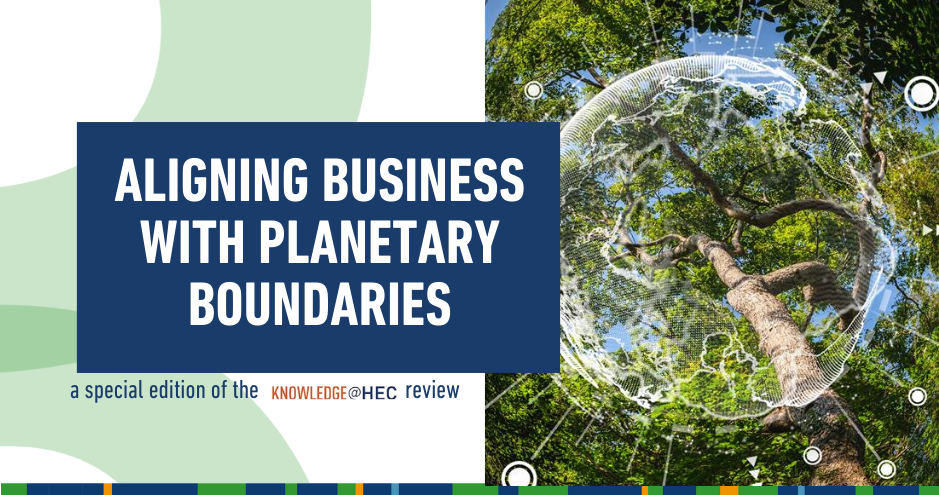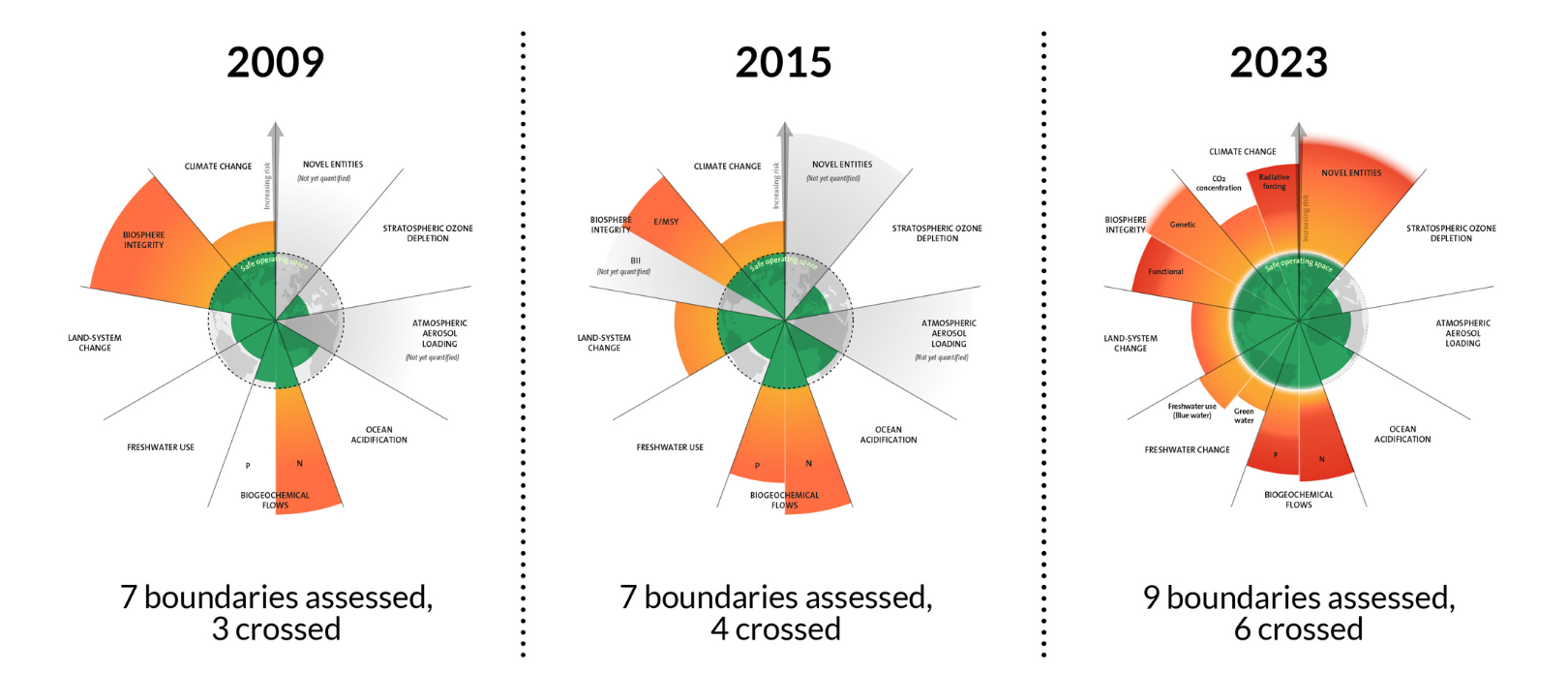HEC Paris Commits to the Planet: A Special Issue of Knowledge@HEC Dedicated to Planetary Boundaries
In response to the growing climate crisis and the urgent need for environmental protection, HEC Paris has published a special issue of its Knowledge@HEC review focusing on planetary boundaries. Entitled "Aligning Business with Planetary Boundaries," this issue explores the inseparable links between business practices and environmental respect. It highlights the pioneering initiatives led by HEC Paris to address organizational, environmental, and societal challenges within the nine planetary boundaries defined by the Stockholm Resilience Centre. On May 22nd, during the Climate Day, this special issue was officially launched.

Humanity Facing the Limits of the Planet
As Daniel Halbheer points out in his editorial letter, humanity is at a crossroads, facing an environmental crisis that demands urgent and collective action. Pollution and conflicts related to limited resources are multiplying, reminding us that we live on a planet with finite resources and that our economic activity must operate within well-defined limits, the planetary boundaries.
The planetary boundaries since 2009, as presented by the Stockholm Resilience Center.

The 3Rs: Reduce, Reuse, Recycle
In this context, the principles of the 3Rs - Reduce, Reuse, Recycle - take on their full meaning. Recycling, an absolute priority, offers opportunities for businesses and entrepreneurs (Part 15). Reuse, a powerful way to extend the life of products and slow down resource extraction, paves the way for innovation in economic models (Part 11). Reduction, which means "buying less," encourages the design of products and services with a low environmental footprint, thus transforming supply chains (Part 12).
As we navigate the complexities of the modern world, the urgency for sustainable business practices has never been more pronounced.
Éloïc Peyrache
An Issue Rich in Contributions
This special issue brings together contributions from researchers, teachers, students, entrepreneurs, and business leaders, all committed to building a more sustainable future. It is divided into 21 parts, each addressing a specific aspect of the theme of planetary boundaries and the role of businesses in respecting them.
Please visit the links below to discover the 21 parts that illustrate how companies can align themselves with planetary limits:
- Part 1: Aligning businesses with planetary boundaries: editorial letter
- Part 2: How management research can address environmental and social challenges
- Part 3: The Society & Organizations Institute (S&O): purpose and vision
- Part 4: Linking sustainable supply chains to AI
- Part 5: Nexans revolutionizes sustainability in the electricity sector: interview with CEO Christopher Guérin
- Part 6: Mazars’ commitment to promoting a regenerative economy: interview with Maximilien Rouer
- Part 7: Rothschild & Co promotes sustainable finance: interview with Géraldine Gouges
- Part 8: Restructuring courses for sustainability
- Part 9: Leading sustainable transformation at HEC: vision from the Chief Sustainability Officer
- Part 10: Student voices on HEC's sustainable transformation
- Part 11: Embracing the circular economy to align business models with planetary boundaries
- Part 12: Sustainable cities pave the way for successful public-private collaborations
- Part 13: Aligning corporate lobbying with planetary boundaries
- Part 14: Is global convergence of sustainability reporting possible?
- Part 15: Two HEC startups use plants and satellites to promote sustainability
- Part 16: What drives companies to invest in green technologies?
- Part 17: How investment capital can motivate polluting companies to change for good
- Part 18: Impact investing: how HEC alumna Karen Degouve engages in the transition
- Part 19: From roasted coffee to origin: how HEC alumnus Quentin Rouyer engages in the transition
- Part 20: Arnaud Vagner: dismantling fraudulent companies to maintain green business integrity
- Part 21: Driving positive change: aspirations of HEC Foundation donors
This issue also pays tribute to the work accomplished by our Sustainability & Organizations Institute, particularly the Climate and Earth Center, over the past 15 years. The center has placed sustainable development at the heart of the school's concerns, based on the "Think, Teach, Act" pillars.
Download the issue for free